Survey: More students are beginning research for study abroad within six months before applying
- A major global survey conducted earlier this year shows that 56% of surveyed prospective students began researching study abroad options only 6 months before applying to a university – or even less than that
- Roughly half of student respondents were from Africa
- Safety, affordability and accommodation are top of mind for prospective students this year
- Students want to work while studying – whether part-time, full-time, or through internships
- Canada became more popular as a destination between 2022 and 2023, while the UK became less so
A large global survey of 23,800 prospective international students representing 195+ countries reveals that students are once again evolving in the way they approach decisions about study abroad.
Two major highlights from the Keystone Education Group's 2023 State of Student Recruitment Report conducted from January–April 2023 are:
- A growing number of students are researching study abroad options less than six months before applying;
- Three-quarters of students are worried about the safety of studying abroad, particularly when it comes to the prospect of racial discrimination.
The survey findings also underline that students are intensely focused on their careers when deciding where, and what, to study.
Heavy African representation
More than half of student respondents were from Africa (52%), and Asian students made up the next largest proportion (18%). Smaller proportions came from Europe (14%), Latin America (7%), North America and the Middle East (4% each).
Almost half were master’s students (46%), with the remainder studying at the bachelor (26%), doctorate/PhD (14%), and diploma (5%) levels.
Canada surges in popularity; affordability is top of mind
A major finding of the study was that students are becoming increasingly focused on travelling to a particular destination. Most students still prioritise study programme above all else (52%) but 30% now consider destination before programme or school.
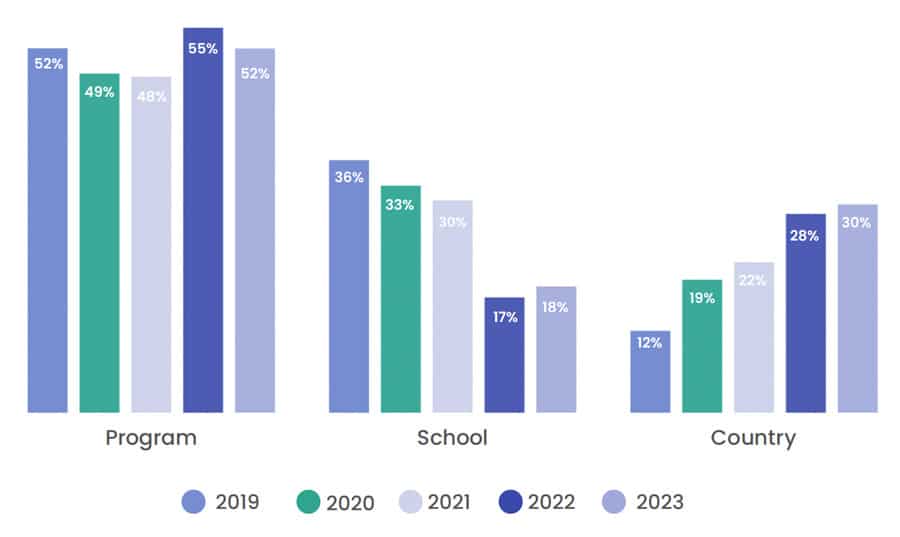
In 2023, Canada displaced the UK as the top study destination for prospective students surveyed by Keystone, moving up by 29% at the same time as the UK dropped by 20% since 2022. The US moved up by 8% and is now almost tied with the UK. Germany’s standing fell by 29%. Australia is in fifth place, but this also reflects the survey’s heavy skew towards African student respondents. No African countries were in Australia’s top 20 student markets in 2022, though Kenya appears to have moved into 20th place so far this year.
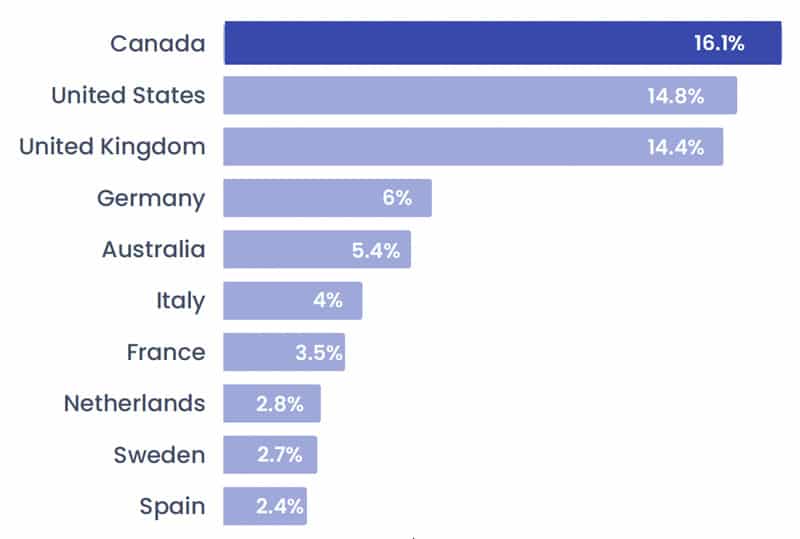
The UK’s popularity as a study destination may fall further as the year progresses given the recent news that only some international students will be permitted to bring family with them to the UK in 2024.
The Keystone survey found that students’ concerns about visa requirements and immigration rose by 9% compared with 2022. In 2023, visa issues are the second largest area of concern (46%) after tuition fees and living expenses (79%). Worries about finding accommodation are also high, with 43% of prospective students citing this as a concern.
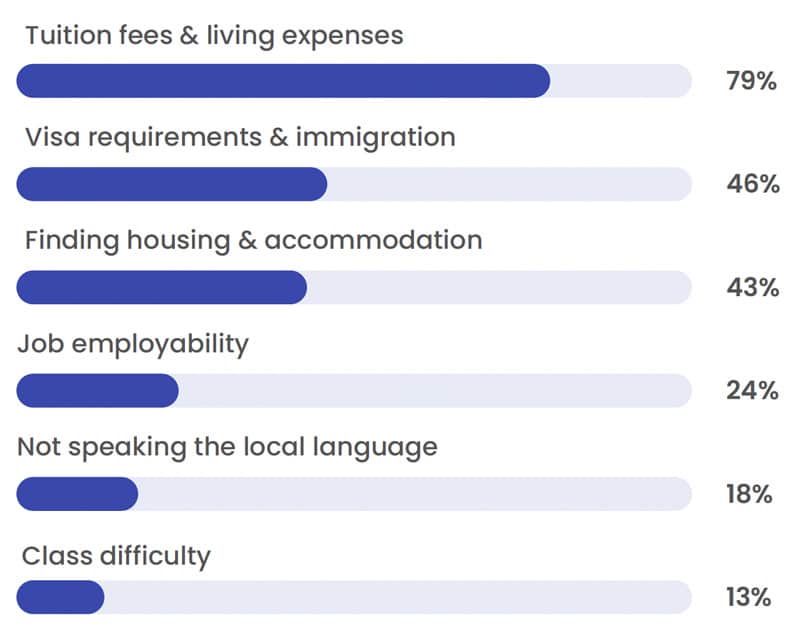
More than half go abroad for career reasons
The study found that students are pragmatic about study abroad. Career goals are the top motivation (53%), followed by a desire for personal development (46%) and having access to higher quality teaching (35%). “Having an adventure” was a motivation for only 6% of students.
Similarly, when looking at a particular programme, students are career-minded, looking for internship opportunities (37%), a practical curriculum (24%), and “resume-enhancing” features (17%).
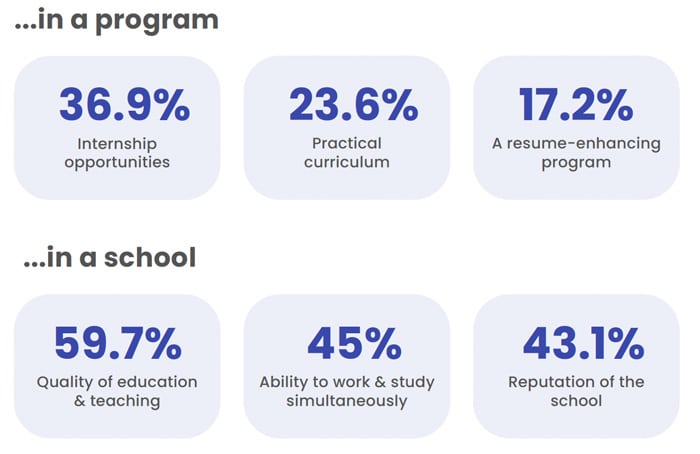
Timeline shortens for study abroad decisions
More than half (56%) of prospective international students said they began researching study abroad less than 6 months before applying, up from 45% in 2022. This proportion is much higher than those beginning research 6–12 months (29%) and 12–24 months (10%) before applying. This finding may inspire some educators to rethink the pacing of campaign events/interventions going forward – it suggests that the decision-making process is happening more quickly than in the past.
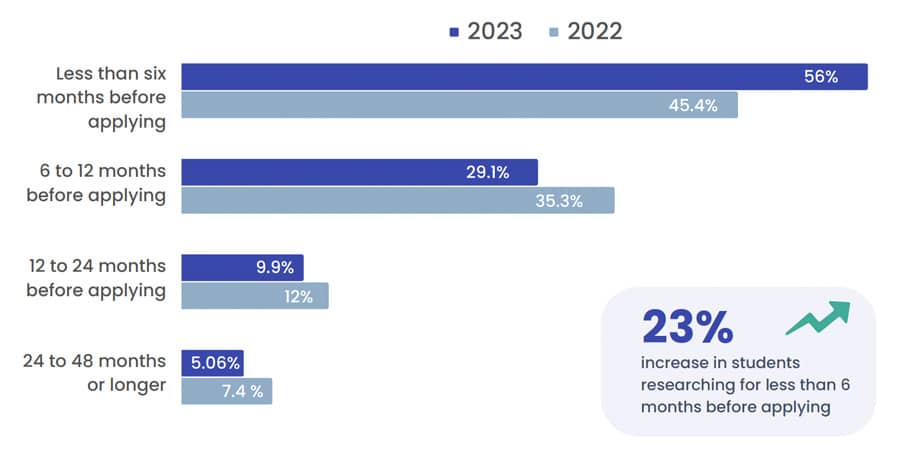
Students want answers fast
The shorter window of time in which students are now making study abroad decisions suggests that they need answers to their questions more quickly than ever before if they want to meet application deadlines. Survey findings confirm this idea: 11% expect a response from a university “immediately,” up 21% from 2022. Overall, more than 6 in 10 students said they wanted a response within 24 hours. Email is the preferred method of communication (76%).
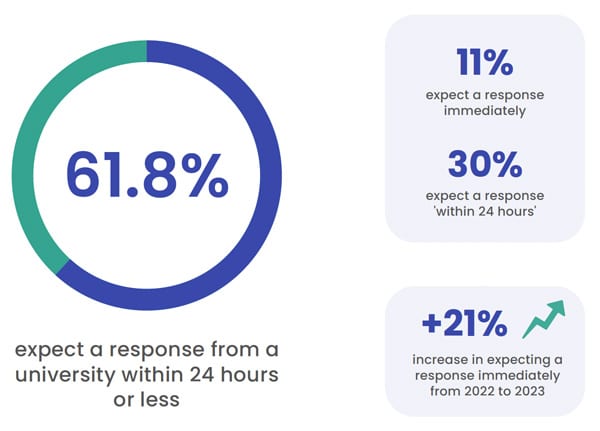
Looking for scholarships and work
Reflecting students’ concerns about affordability, information about scholarships and funding was the most-desired content students are looking to receive from universities (40%), followed by visa and immigration information (12%), and then by cost of living and practical information (8%).
Most students told Keystone they plan to work either part-time or full-time when studying abroad.
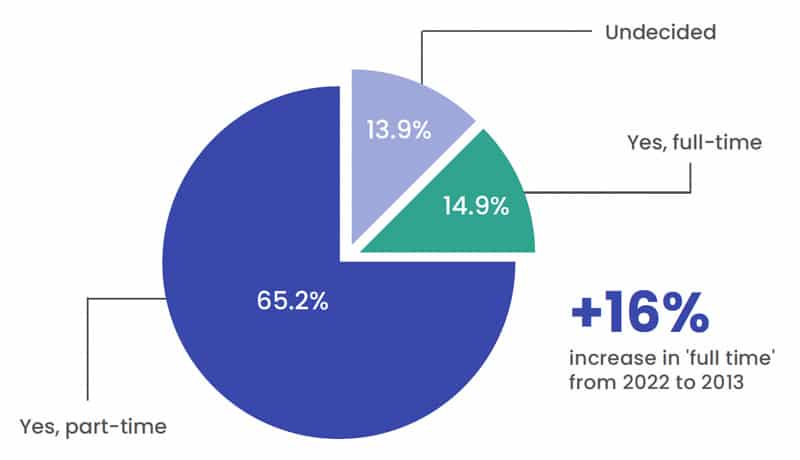
Safety is a major issue
A very significant proportion of students said they are worried about safety. On average, 75% said they were worried about their safety while studying abroad, but this rose to 85% among African students. The top concern around safety is racial discrimination.
For additional background, please see:
















